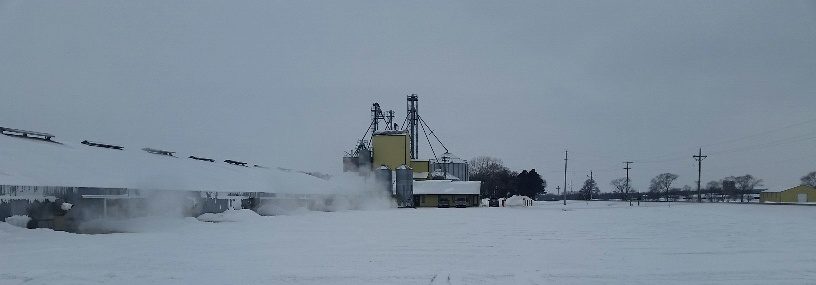Keeping Hens Safe, Warm and Healthy in Harsh Weather
December 2, 2019
December 2, 2019

Amid blizzards, thunderstorms and other extreme weather, how do farmers keep their animals safe, warm and healthy?
Safety authorities advise staying us to stay out of harsh weather by staying indoors as much as possible. That’s good advice for animals and is one of the many reasons that egg-laying hens are kept indoors.
Years ago, chickens were raised with access to an outdoor environment. But egg farmers learned over the years and through experience that climate-controlled barns provide warmth and comfort and improve overall flock health while protecting hens from the spread of disease.
The term “biosecurity” refers to measures farmers take to protect their animals from disease. The U.S. Department of Agriculture emphasizes the importance of strong biosecurity with the “Defend the Flock” program to help raise awareness and promote disease prevention practices among farmers and others.
The Defend the Flock Toolkit focuses on biosecurity basics such as the importance of washing hands before coming in contact with animals, changing clothes before entering areas of the barn where the birds live, and keeping tools and equipment clean and dry to ensure farmworkers don’t carry pathogens into barns. It’s also important to keep visitors to a minimum and only allow essential personnel on the farm. Farms with strong biosecurity programs allow only people who care for the birds inside the barns.
Being indoors also protects hens from migratory waterfowl and other wild birds that can carry disease. Hens that are allowed to come in contact with bird droppings, or other biomaterial from wild birds, are at higher risk of disease that can strike quickly and have devastating consequences.
Another benefit of keeping animals indoors is keeping predators at bay. Chickens left unprotected are easy targets for dogs, coyotes, foxes, owls, and other predators. The indoor setting also makes it easier to provide hens good access to food and water, as well as the conditions that allow them to lay clean, unbroken eggs. Finally, keeping flocks inside also enhances the opportunity for animal care workers and veterinarians to monitor the health of the flock regularly.
Keeping animals safe and healthy through extreme weather is hard work but it’s a top priority for America’s egg farmers. There are many options for housing hens today, and all of them can provide for the health and well-being of egg-laying hens. Regardless of the housing in which hens are kept, when managed well, consumers can be confident that the eggs they purchase are safe and nutritious.
Photo source: Minnesota Turkey Growers